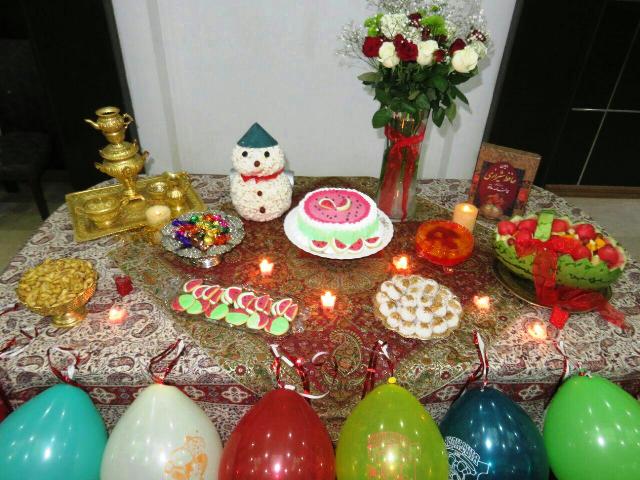For Iranian families and friends, Shab-e Yalda (Yalda Night), has long been a treasured time to come together and celebrate in honor of the longest night of the year!
On that graceful night, the winter chill is vanquished and the warmth of love embraces the entire family. Hearts move closer to one another in the company of loved ones on Yalda.
The event, which falls on December 21 this year, also presents an excellent opportunity for Iranians living abroad to include people from different nationalities and cultures. Sharing traditions and customs is a way to forge lasting connections and to foster better mutual understanding in our interconnected world.
A peek into the bustling streets, grocery and confectionery stores show that people from all walks of life are preparing in advance to have fun.
In Nairobi Kenya the Iranian Diplomatic community led by the Ambassador H.E Dr. Hadi Farajvand celebrated Shab-e Yalda at the Embassy office at Lower Kabete Nairobi.
People on Yalda Night are usually served with fresh fruits and colorful Ajil (a mixture of dry fruits, seeds and nuts) in floral bowls. To Iranians, fruits are reminders of abundance in summer. Watermelon and pomegranates, as symbols of bounty, are the traditional fresh fruits of this night. It is believed that eating watermelon before the arrival of winter can immunize the body against illness.
Following a hot dinner, many people often recite poetry, narrate stories, chant, play musical instruments or just chat cozily until midnight or so.
The feast is also famous as “Shab-e-Chelleh”, literally meaning the night of the forty. In fact, “Shab-e-Chelleh” refers to the first forty days of winter that are often the coldest and toughest to bear.
In the ancient Iranian calendar, winter is divided into two parts, Chelleh Bozorg (literary meaning the bigger forty) from 22nd of December to 30th of January and Chelleh Koochak (the smaller forty), which starts from 30th January to 10th of March.
Narratives say that Yalda Night marks the birth of winter and the eventual triumph of the sun as the days grow longer. The word Yalda, meaning birth, was imported from Syriac into the Persian language by the Syriac Christians.
Though it is not even an official holiday, Yalda still stands head and shoulders above some other ancient traditions. By the way, television and radio programs fully cater to it by airing special programs.
The story of Yalda may be interpreted as a tale of courage and effort during darkness, a triumph of light and human warmth that ultimately causes the spring to bloom in hearts.


